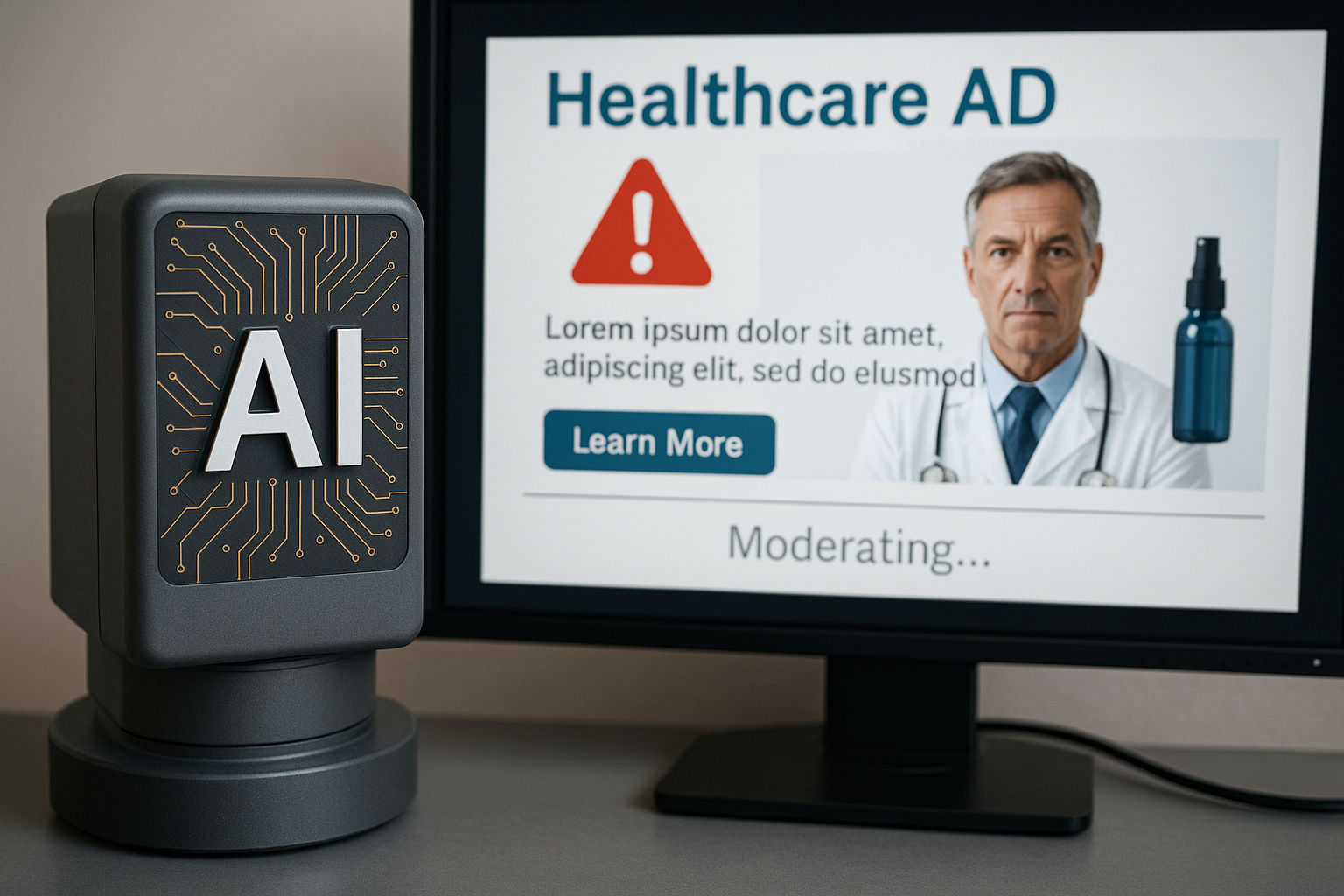Why AI alone cannot address healthcare misinformation
The study notes that while each framework provides useful insights, none can address the problem alone. The real challenge is translating ethical theory into practical mechanisms for content moderation. To this end, the authors advocate for hybrid systems where AI handles large-scale detection but escalates questionable cases to human moderators trained in healthcare ethics. This combination, they argue, offers both efficiency and moral accountability.

Artificial intelligence is being deployed to moderate the vast amounts of healthcare-related content that appear on digital platforms each day, but concerns are mounting over its ethical shortcomings. A new study highlights how automated systems often fail to catch harmful medical misinformation and calls for a more human-centered approach to protecting public health.
The research, titled “Towards Navigating Ethical Challenges in AI-Driven Healthcare Ad Moderation” and published in the journal Computers, examines how social media platforms rely on AI to filter healthcare advertisements and the risks that result when ethical considerations are neglected. It explores the strengths and weaknesses of current models, evaluates them through classical ethical frameworks, and proposes a multi-layered governance approach that combines human oversight with technological innovation.
Why AI alone cannot address healthcare misinformation
The study begins by identifying the risks posed by fraudulent healthcare advertisements. These include promotions for unproven treatments, misleading claims about cures, and marketing strategies that exploit vulnerable individuals seeking medical solutions. Such content spreads rapidly online, aided by platform algorithms that prioritize engagement metrics such as clicks, shares, and watch time. The problem is compounded by the fact that AI filters often miss deceptive language or context-specific claims that require human judgment.
Unlike in areas such as spam detection, healthcare advertising demands contextual sensitivity and moral reasoning. The study stresses that AI lacks the interpretive flexibility to distinguish between legitimate medical advice and manipulative content. For example, a misleading product may use scientific-sounding terminology to appear credible, which algorithms may interpret as compliant. As a result, AI not only fails to prevent the circulation of dangerous ads but sometimes amplifies them due to their high engagement potential.
The authors argue that this exposes a central limitation: while AI excels in speed and scalability, it cannot substitute for ethical decision-making. Relying solely on automated systems risks normalizing harmful content and undermining trust in both digital platforms and healthcare institutions.
How ethical theories expose shortcomings in current practices
To analyze these risks, the paper evaluates healthcare ad moderation through the lenses of utilitarianism, deontology, and virtue ethics. Utilitarianism, which emphasizes maximizing welfare, supports removing harmful ads to protect the greatest number of people. However, it struggles with trade-offs when balancing free expression against harm reduction. Deontology, focused on duty and rules, aligns with strict compliance but may lack flexibility in novel or ambiguous cases. Virtue ethics stresses the cultivation of moral character and integrity, requiring platforms to embrace values such as honesty and responsibility in their organizational culture.
The study notes that while each framework provides useful insights, none can address the problem alone. The real challenge is translating ethical theory into practical mechanisms for content moderation. To this end, the authors advocate for hybrid systems where AI handles large-scale detection but escalates questionable cases to human moderators trained in healthcare ethics. This combination, they argue, offers both efficiency and moral accountability.
Another critical issue raised is transparency. Current AI models operate as “black boxes,” offering little explanation for why content is flagged or approved. This undermines trust among users and regulators alike. The study highlights the need for explainable AI that can provide human-understandable reasons for its decisions. Paired with audit trails and documentation, such systems would allow platforms to maintain accountability and reduce bias in moderation outcomes.
Equally important is the redefinition of success metrics. By prioritizing engagement-driven algorithms, platforms inadvertently reward sensational or misleading content. The authors call for a shift toward metrics that emphasize accuracy, harm reduction, fairness, and public health outcomes. Without this realignment, even well-designed moderation systems risk perpetuating misinformation.
What governance framework can ensure accountability
The study further outlines a governance model to guide ethical healthcare ad moderation. It proposes five pillars. The first is internal governance, which includes ethics boards, audit trails, and whistleblower protections to hold platforms accountable from within. The second is external oversight through independent audits, transparency reports, and mechanisms for public accountability.
The third pillar, adaptive governance, emphasizes the need for flexibility in responding to crises such as pandemics, where misinformation can rapidly evolve. The fourth pillar highlights cross-border interoperability, ensuring that governance frameworks respect cultural and regulatory diversity while maintaining shared ethical baselines. Finally, the fifth pillar underscores the importance of embedding virtue ethics into organizational culture, encouraging platforms to cultivate honesty, humility, and responsibility in daily practices.
The authors stress that adopting this governance model is not optional but essential for safeguarding public health. Without enforceable mechanisms, platforms risk allowing harmful ads to proliferate under the guise of free expression or algorithmic neutrality. Hybrid human–AI systems, combined with transparency and strong governance, are presented as the only viable path forward to ensure that healthcare advertising serves the public good rather than endangering it.
- FIRST PUBLISHED IN:
- Devdiscourse









